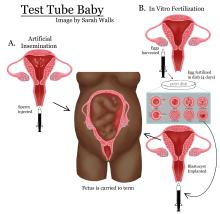Filter my results



In 2017, Angiolo Gadducci, Silvestro Carinelli, and Giovanni Aletti published, "Neuroendocrine Tumor of the Uterine Cervix: A Therapeutic…
LiteratureCervical CancerCancerUterine Cervical NeoplasmsNeoplasms
In September 2003, Robert L. Goldenberg and Cortney Thompson published the article “The Infectious Origins of Stillbirth” in the American Journal of…
LiteratureFetal deathInfectionQ FeverMalaria in pregnancy
George Otto Gey was a scientist in the US who studied cells and cultivated the first continuous human cell line in 1951. Gey derived the cells for…
HeLa CellsCell MovementKB CellsCell CommunicationCulture Media, Conditioned
In 1902, editors of the medical journal Alkaloidal Clinic Wallace C. Abbott and William Francis Waugh published Sexual Hygiene, a book about normal…
LiteratureSexual HealthSex EducationHygienePublications


Jérôme Lejeune was a French physician and researcher who studied genetics and developmental disorders. According to the Jérôme Lejeune Foundation, in…
Down syndromeMongolismKaryotypeGenetic ScreeningGenetic Concepts
“Test-tube baby” is a term used to refer to a baby produced through artificial insemination or in vitro fertilization, also called IVF.
Fertilization in vitro, HumanHuman reproductive technologyIn Vitro TechniquesZygoteIn Vitro Oocyte Maturation Techniques
John Langdon Down studied medicine in England in the nineteenth century and was one of the first people to develop a complete description of the…
Down syndromeDevelopmental DisabilitiesPartial Trisomy 21 Down SyndromeTrisomyPartial Trisomy